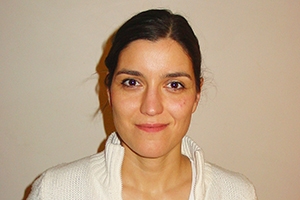Firstbridge courses are offered to degree seeking freshmen and registration is done via webform in pre-arrival checklist.
Professor(s)
Notes
In 1898, the famous French painter Paul Gauguin finished a large canvas entitled Where do we come from? What are we? Where are we going?. Influenced by Polynesian culture, to the point that he settled in Tahiti and the Marquise Islands for the last decade of his life, Gauguin was preoccupied with finding a visual equivalent to some fundamental questions: what are the origins of humanity, what is the goal of our existence, what is our place in the universe, what happens to us after we die, what will remain behind us? In his attempt to answer these questions, the artist confronted diverse religious references, from Adam and Eve to pagan totems and Buddha, as well as diverse artistic traditions, from his native Western to Polynesian and Japanese. Gauguin’s work was not an exception; at the end of the 19th century, with the progressive recognition of prehistoric art and non-Western art and cultures, artists embraced essential ethic, scientific, philosophical interrogations revising their own beliefs and stereotypes.
This course will explore how important questions such as what makes us human and why we are here are reflected in or expressed through visual representation. We will go back to prehistoric art and what it tells us about our ancestors, the first humans; we’ll look at representations of the creation of the world and of humans in different cultures (Egyptian, Greco-Roman, Christian medieval in Western Europe, Polynesian); we’ll see how artworks reveal social attitudes towards the “other,” people of different cultures and color, from the Renaissance to Gauguin; finally, we’ll look at how art was used by the Nazis to answer these big questions through simplified images of the purity of the race suggesting the possible rebirth of a pure race and eventually justifying genocide.
Learning Outcomes
- Students will comprehend how information is produced and valued in order to discover, evaluate, use, and create information and knowledge effectively and ethically. In FirstBridge, students will demonstrate the conversational nature of scholarship, and recognize their potential role and responsibilities as contributors to that conversation. For each discipline taught in FirstBridge, students will identify reference works, journals, databases and/or major works in history, in order to start effective research in the field. (FB LO1)
- Students will acquire the study skills, time management, and interpersonal skills needed to meet the demands of university-level academic work at a Liberal Arts College individually or as a team. Students will value the multiple meanings of place through experiential learning at AUP and beyond in the Parisian or global context. (FB LO2)
Syllabus
Schedule
| Day | Start Time | End Time | Room |
|---|---|---|---|
Friday | 10:35 | 11:55 | VISIT-1 |
Wednesday | 12:10 | 13:30 | C-101 |
Friday | 12:10 | 13:30 | C-101 |

